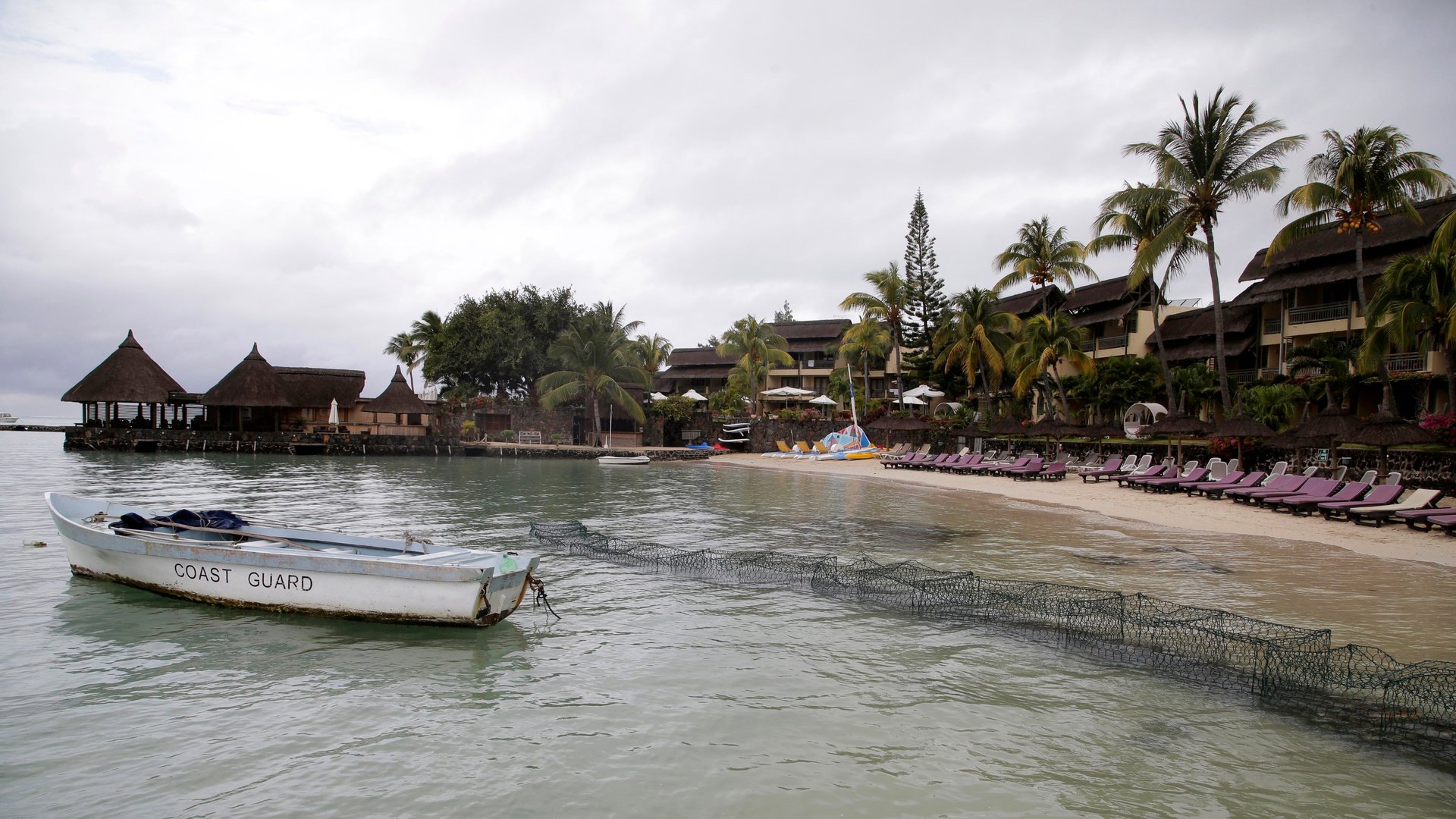The island where Africa’s rich get richer
Last year was tough for Africa’s wealthy. Across the continent, the rich saw their ranks decline. Tiny Mauritius, however, bucked the trend in a big way.


Last year was tough for Africa’s wealthy. Across the continent, the rich saw their ranks decline. Tiny Mauritius, however, bucked the trend in a big way.
There were approximately 145,000 people with net assets worth $1 million or more living in Africa at the end of 2016, down 2% from the previous year, according to a report by AfrAsia Bank. In Mauritius, meanwhile, the number of millionaires grew by 20% in 2016, to 3,800, more than in much larger countries like Ethiopia and Ghana. (The average African has a net worth of $2,000.)
Still, established economies such as South Africa and Egypt are home to the most millionaires on the continent:
In the past decade, the number of millionaires in Mauritius (population 1.3 million) has more than tripled, compared with an average growth of 19% across the continent. Mauritian economic growth is modest—GDP is forecast to rise by 3.8% this year, up from 3.5% in 2016—so the island mostly attracts existing millionaires from elsewhere instead of creating new ones.
Mauritius offers more than white beaches and turquoise oceans for well-to-do residents—the country has structured its economy to make sure that it is as attractive to investors as tourists. The country is already considered the easiest African nation to do business in, according to the World Bank. Low tax rates are attractive to moneyed outsiders: personal and business tax is only 15%, with no capital gains or inheritance taxes.
In 2002, Mauritius opened the island to foreigners, allowing them to purchase properties outright. Buying a property worth $500,000 leads to automatic permanent residence. People living in Mauritius are also allowed to invest abroad with no exchange controls.
Mauritius has been especially attractive to wealthy South Africans, and AfrAsia estimates that 280 South African millionaires have moved to the island since 2006. This influx of wealthy residents has boosted the average per-capita wealth of the country, but some worry about rising inequality (pdf).
Mauritius’ success in modernizing and diversifying what was once a sugar- and tourism-based economy is evident in the numbers. The country has avoided many of the political and social challenges common on the mainland, but its low-tax, light-regulation model would be hard to apply in bigger countries in Africa. Still, as long as Mauritius stands out so starkly in the stats on wealth, investment, and other measures, the rest of Africa will wonder what it can learn, if anything, from that rich little island out in the Indian Ocean.